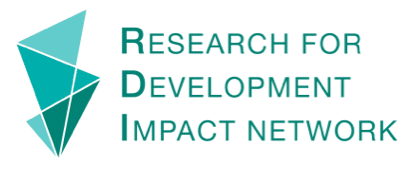Relevant and meaningful partnerships with Indigenous organisations foster more effective programs. Decolonising methodologies can be applied to partnerships with Indigenous organisations to address ongoing colonising forces in research and partnerships.7 Decolonising methodologies challenge our assumptions about how programs and research are conducted and for whom.
Below are six key points and six recommended resources to guide learning on partnerships with Aboriginal and Torres Strait Islander peoples and organisations, though the key points apply to partnerships with Indigenous peoples’ and organisations beyond the Australian context.
Respectful, meaningful, and relevant partnerships with Aboriginal or Torres Strait Islander communities, leaders, and/or organisations.
Programs that impact Aboriginal and Torres Strait Islander people should be led by, or delivered with, Aboriginal and Torres Strait Islander people.
The national Ethical Conduct guidelines linked below provides useful direction on integrating partnership principles of: reciprocity, respect, equality, responsibility, survival and protection, and spirit and integrity.
These principles require a commitment to long-term and flexible partnerships that respond to Aboriginal and Torres Strait Islander peoples’ aspirations. This stands in contrast with programs that are based on external agendas, fragmented rather than holistic, and/or are short term. Further, these principles provide a foundation for trust-building in partnerships. Trust is foundational to effective partnerships, and something to be earned and not assumed.
Recognising and leveraging strengths
Strength-based approaches refer to practices which view people and places as rich in strengths which can be highlighted and used to create change. Arrernte woman, Sabella Kngwarraye Turner, noted Aboriginal strengths of culture, Country, language, kinship, stories, clear thinking, good feelings, good relationships and strong bodies, as central strengths to foster strong spirit and Aboriginal well-being (see Trauma informed article below). Although strengths may differ between people and place; they highlight potential building blocks to foster well-being in programs. Also, by focusing on strengths, programs can challenge colonial narratives of the supremacy of western world views.
Recognition of historical and contemporary injustices.
Researchers and their institutions have historically played a role in the colonisation of Aboriginal people. Further, traumas of invasion and colonisation continue today often in institutionalised forms, meaning research may threaten Aboriginal and Torres Strait Islander people’s ways of knowing, being, and doing.
Non-Indigenous partners should consider how the past impacts the present, and how present practices can perpetuate or redress harm from colonisation. For example, programs should strengthen rather than diminish self-determination, cultural, social, and political life.
Culturally responsive partnerships should honour an Indigenous worldview of holistic identity, connection and wellbeing.
Western-centric approaches programs can fail to value Aboriginal or Torres Strait Islander peoples’ ways of knowing, being and doing. For example, aspirations for belonging (to family, community and country) can be overlooked by western-centric systems that value different goals and ways of getting there.
Researchers may need to undergo their own transformative process to recognise Aboriginal and Torres Strait Islander peoples’ worldviews as genuine and valid. This requires an ongoing reflection on “patterns of thought, behaviour, assumptions, power and privilege that may have been (consciously or unconsciously) [diminish] the full expression, autonomy, voice and choice of Aboriginal people.” (Cubillo, 2021).
Honouring Indigenous worldviews can highlight tensions between western and Indigenous governance approaches. We don’t provide an answer to these tensions, but they are important for researchers and practitioners to reflect on, listen to, and engage in dialogue with Aboriginal and Torres Strait partners on worldview tensions.
Leadership by Aboriginal and Torres Strait Islander people
Programs are more likely to be successful when Aboriginal and Torres Strait Islander community members have power over a program design, delivery, and governance. When led by Aboriginal and Torres Strait Islander people, programs are more likely to foster trust and align with cultural practices and values.
Diversity across Indigenous peoples
There are hundreds of different Aboriginal and Torres Strait Islander nations in Australia. In addition to diverse geography, they differ by language, culture, and spirituality. Programs should be adaptable to such differences between people and places. Practitioners should engage in listening, dialogue and learning in place to develop an understanding of these differences and their implications for programs. For example, aspirations and values will differ between and within communities. Further, because of colonisation, Indigenous people will have differing connections to culture, Country and community; program approaches should reflect these differences.
Links:
- Partnerships for Indigenous Development: International Development NGOs, Aboriginal Organisations and Communities (4.5 hours, report)
- Trauma-informed care: Working with Aboriginal and Torres Strait Islander communities (22 min, web article)
- Ngaa-bi-nya Aboriginal and Torres Strait Islander program evaluation framework (28 minutes, article)
- Ethical conduct in research with Aboriginal and Torres Strait Islander peoples and communities: guidelines for researchers and stakeholders (53 minutes, guidelines)
- What works in effective Indigenous community-managed programs and organisations (2 mins, overview; 43 minutes, full report)
- Linda Tuhiwa Smith: Decolonising Methodologies, 20 years on – (1 hour, video presentation)
- Decolonizing Methodologies Research and Indigenous Peoples by Linda Tuhiwa Smith – (seminal book, 12 hours)



